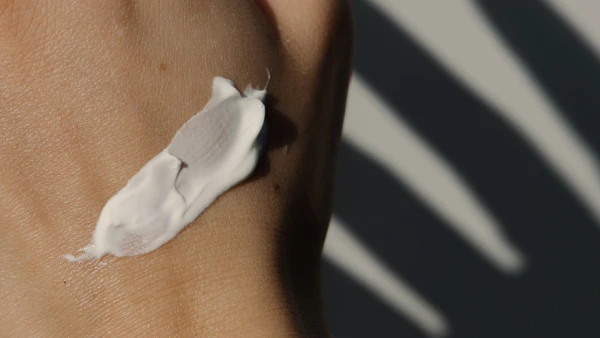Blog
How to Protect and Boost Collagen for Smooth, Radiant Skin

Collagen is the foundation of youthful skin, providing structure, elasticity, and firmness. As we age, collagen production naturally declines, leading to wrinkles, sagging, and reduced skin resilience. However, it is possible to maintain and even enhance collagen levels with the right strategies. Here’s how collagen supports skin health and the most effective ways to protect and boost it.
What is Collagen, and Why Is It Essential for Skin Health?
Collagen is the most abundant protein in the body and plays a crucial role in maintaining firm, smooth, and elastic skin. Acting as the skin’s scaffolding, it provides strength and structure. As collagen production slows with age, fine lines, wrinkles, and loss of firmness become more apparent.
Collagen also aids in moisture retention and skin elasticity, which are essential for a plump, youthful complexion. Given its importance, many individuals seek ways to support collagen production and maintain healthy, resilient skin.
How Does Collagen Affect Skin Elasticity and Firmness?
Youthful skin is characterized by its firmness and bounce—both of which are directly influenced by collagen. This protein allows the skin to stretch and return to its original shape. As collagen levels decrease over time, skin loses its natural firmness, resulting in sagging and fine lines.
By preserving and stimulating collagen production, it is possible to maintain skin resilience and a more youthful appearance.
What Causes Collagen Loss as We Age?
Collagen depletion is a natural part of aging, with an estimated 1% loss per year after the age of 30. However, certain factors can accelerate this process:
- Sun exposure: UV rays damage collagen fibers, accelerating skin aging. Consistent use of sunscreen is essential for protecting collagen and preventing premature wrinkles.
- Smoking: Smoking is one of the most harmful lifestyle choices for your skin. Tobacco smoke impairs collagen production, reduces circulation, and contributes to wrinkles and skin laxity.
- Poor diet: Diets high in sugar and processed foods can degrade collagen, while nutrient-rich foods support its synthesis.
- Stress: Elevated cortisol levels can break down collagen, leading to premature aging.
How to Protect and Preserve Collagen
Although aging is natural, there are effective ways to slow collagen loss and maintain skin structure:
Wear Sunscreen Daily
UV exposure is one of the leading causes of collagen breakdown. Applying broad-spectrum sunscreen (SPF 30 or higher) every day—regardless of the weather—helps protect collagen and prevent premature aging.
Use Collagen-Boosting Serums
Topical antioxidants like vitamin C support collagen production and protect against environmental damage. Peptide-based serums can also stimulate collagen synthesis and enhance skin elasticity.
Avoid Smoking
Quitting smoking significantly improves skin health by preventing collagen degradation and improving circulation, allowing skin to maintain its natural firmness and glow.
Stay Hydrated
Proper hydration is essential for maintaining skin elasticity. Well-hydrated skin appears smoother and more resilient, reducing the appearance of fine lines and wrinkles.
How to Boost Collagen for Improved Skin Resilience
Beyond prevention, there are several ways to actively increase collagen levels for glowing skin:
Collagen Supplements
Hydrolyzed collagen peptides have been shown to improve skin elasticity and hydration. Regular supplementation can support natural collagen production and help reduce signs of aging.
Vitamin C IV Therapy
Vitamin C is a key component in collagen synthesis. While dietary intake is beneficial, vitamin C IV therapy delivers higher doses directly into the bloodstream for enhanced absorption and efficacy.
GHK-Cu Peptide Therapy
GHK-Cu peptide therapy stimulates collagen production and promotes skin repair, improving texture and firmness over time.
Aesthetic Treatments: PRP Facial and Morpheus8
For those seeking more advanced treatments, PRP (platelet-rich plasma) facials and Morpheus8 can be beneficial for collagen production. PRP facials are a regenerative treatment that uses the body’s own healing properties to stimulate collagen production, improving skin tone and texture. Morpheus8 combines subdermal microneedling and radiofrequency energy to enhance collagen synthesis, promoting tighter, smoother skin.
Consistent Use of Collagen-Boosting Serums
Skincare products containing retinoids, peptides, and hyaluronic acid help support collagen production and improve skin resilience over time.
Can Diet, Hydration, and Sleep Support Collagen Production?
Absolutely. Lifestyle habits play a significant role in protecting your skin’s collagen:
- Nutrient-rich diet: Foods high in vitamin C, E, zinc, and amino acids promote collagen synthesis.
- Adequate hydration: Keeping the skin hydrated helps maintain its elasticity and plumpness.
- Quality sleep: Deep sleep is critical for collagen production and skin repair.
- Stress management: Reducing stress helps regulate cortisol levels, preventing accelerated collagen breakdown.
By incorporating these habits, it is possible to sustain collagen levels and support long-term skin health.
Book an aesthetic consultation to discover the best treatment for you.
Written by Jodie Martin — Medically reviewed by LIVV Natural
Medical Disclaimer: The information provided in this article is for general informational purposes only and is not intended as medical advice. Always consult with your healthcare provider before starting any new supplement, treatment, or making changes to your diet, especially if you have underlying health conditions or take medications. Individual needs may vary, and your healthcare provider can help you determine the best course of action.
